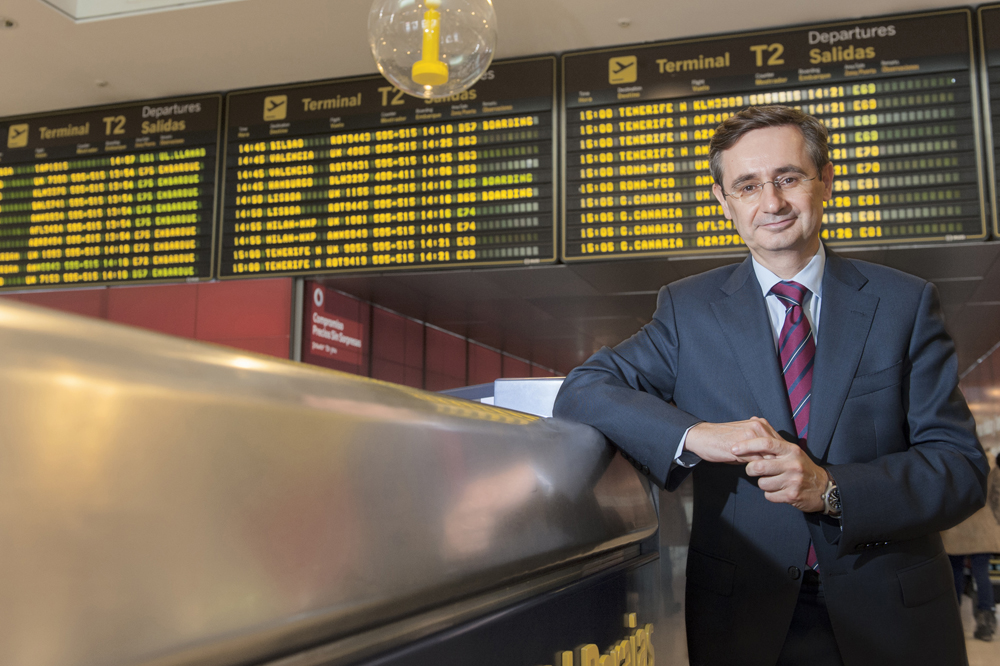By Ignacio Biosca Vancells
The Covid-19 pandemic has had a devastating impact on the world, and the air transport sector has undoubtedly been, along with tourism, one of the most affected. Since the beginning of the pandemic, Aena carried out various initiatives to, on the one hand, guarantee the development of air activity as an essential service for citizens and, on the other, to implement all those measures necessary to guarantee the safety of the facilities.
In the first case, Aena has continued, during all the difficult stages of the Covid-19 crisis, carrying out its work of managing an essential infrastructure to allow the development of vital operations for society at a critical moment. In the second, an operational recovery plan (PRO) has been carried out, which has involved the implementation of numerous new sanitary measures, up to now for the airport environment. Thus, more than 100 measures have been established that have reinforced health security, in order to be in a position to transmit, both to passengers and employees, the confidence that is so necessary in this period.
The measures implemented allow Aena comply with all the recommendations of the European Aviation Safety Agency (EASA) and the European Center for Disease Prevention and Control (ECDC) which, in fact, have been transferred with the category of mandatory standard in Spain. In addition, the 46 airports in the network in Spain have obtained the Airport Health Accreditation certificate granted by ACI, making the company the world’s airport group with the most “safe airports” accredited according to the guidelines of the international aeronautical authorities and the guidelines of the World Health Organization, and 6 of them (AS Madrid-Barajas, JT Barcelona-El Prat, Palma de Mallorca, Malaga Costa del Sol, Alicante-Elche Miguel Hernández and Tenerife Norte) have been audited by the specialized consulting firm Skytrax, receiving the maximum rating of 5 stars in measures implemented against COVID-19.
But Aena’s work has not been limited to these outstanding initiatives, which are essential today. There has also been a continuous work and dialogue with the airlines, in order to exchange information and facilitate the return to operations, and successive incentive packages have been approved that have been adapted to the ever-changing situation in which they are operating given the current situation that the air transport market faces. The incentives approved by Aena have undoubtedly supported the recovery of traffic by offering increasing discounts to airlines, based on the effort they make.
For this summer season, Aena has approved the “Extraordinary Incentive for the recovery of traffic”. According to this, airlines receive a refund on their average monthly landing rate equivalent to their percentage of recovery of operations in the airports of the network, in relation to the number of operations carried out by the airline during the equivalent month in the summer 2019. The number of operations with the right to incentives are those that exceed the following recovery thresholds: 30% for the months of April, May and June and 45% for the months of July, August, September and October. More information about the incentives can be obtained in S21 Incentives & Aena 2021 Rate Guide.
So far, the comments received from the companies on the scheme designed by Aena have been very positive, since they offer certainty about its amount regardless of the number of passengers transported, and we are already working to update them in the winter season of 2021.
In this very turbulent period, only close collaboration between all the actors in air transport, and fundamentally between airports and airlines, will allow us to continue facing this difficult situation to overcome it together as soon as possible. And Aena, with initiatives such as the health measures implemented and the recovery incentives, is going to do everything in its power to contribute to the recovery of air traffic.
* Ignacio Biosca Vancells, is Director of Data and Aviation Market at Aena.

